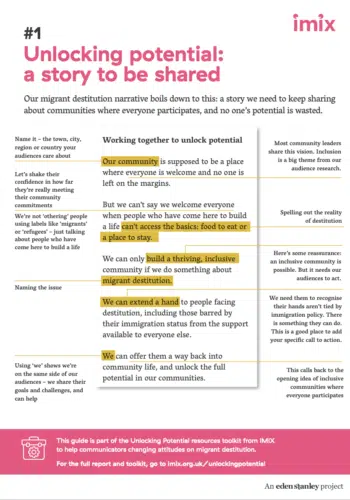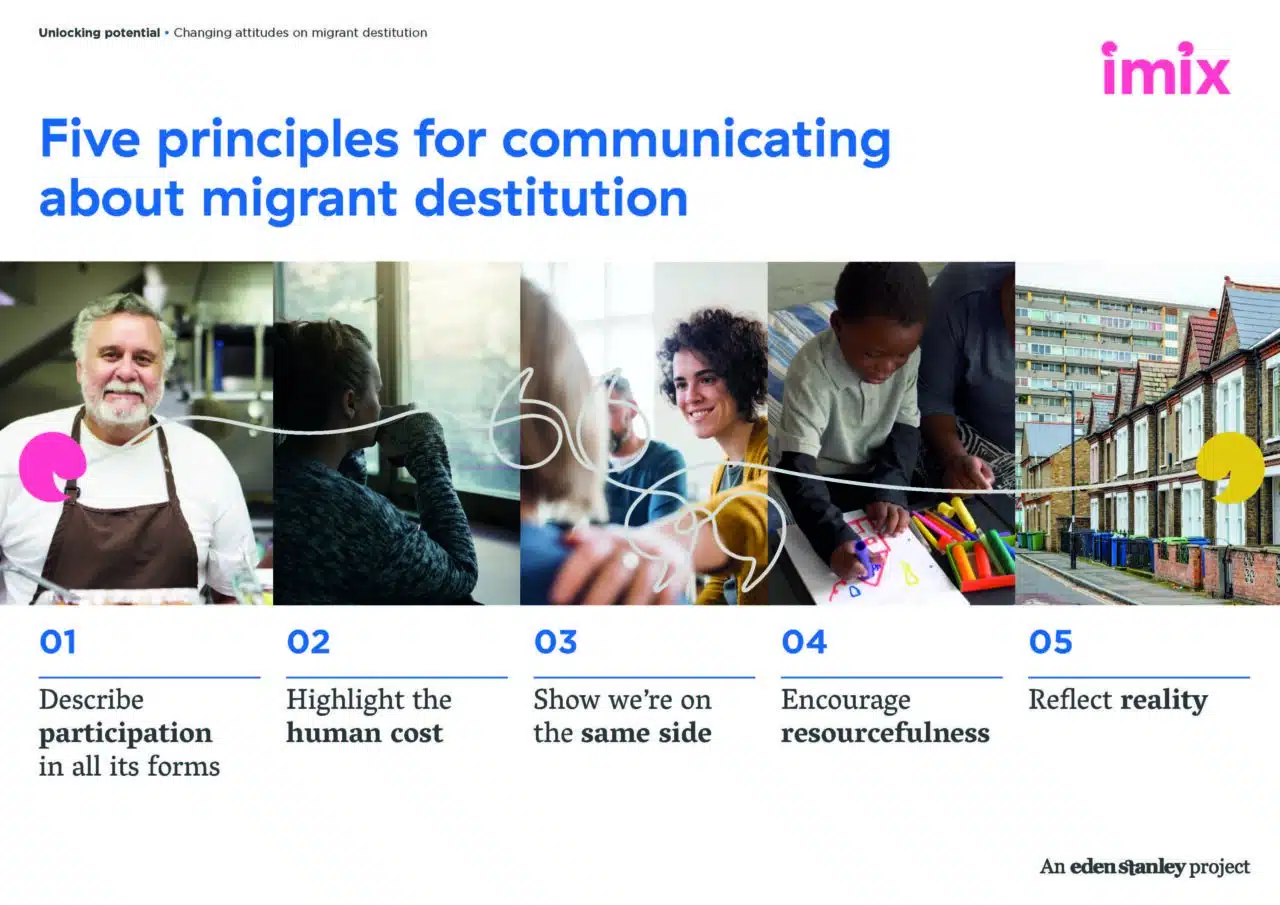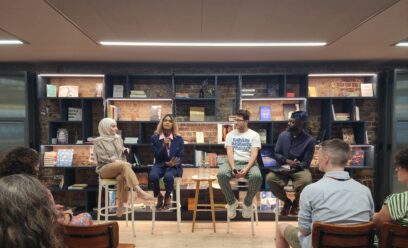Unlocking potential: The Destitution Narrative Project
Posted by Katie Bryson on November 30, 2022Katie Bryson unpacks our latest messaging report and resources on the destitution narrative.
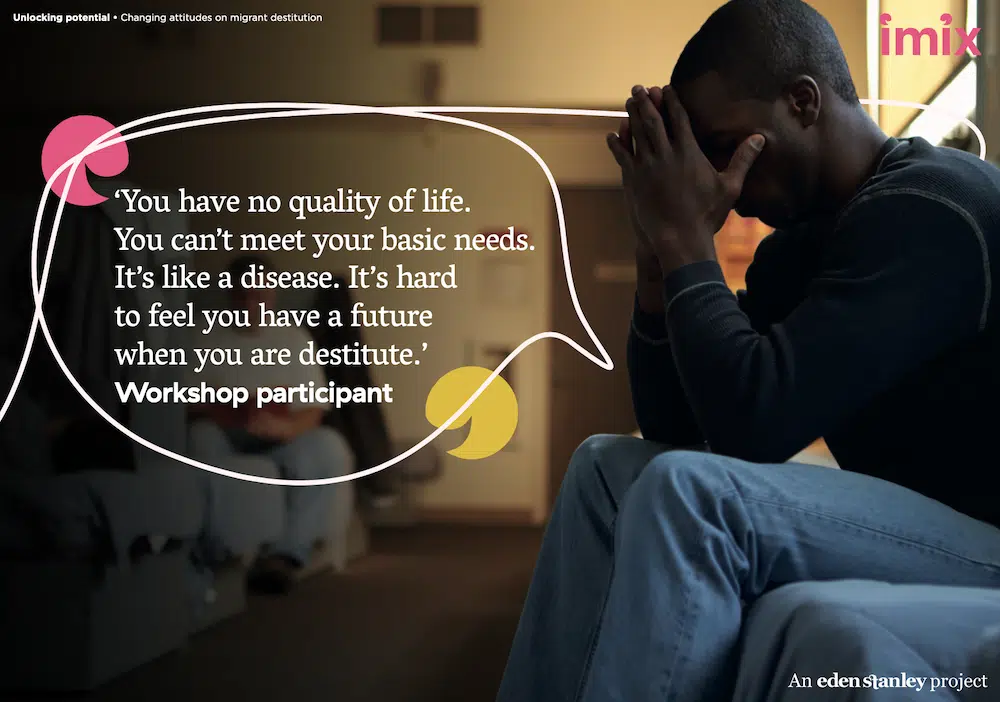
Put 500g of cost-of-living crisis in a mixing bowl called the UK, along with 500g of asylum system that’s definitely passed its sell-by date, give it a stir and it’s a recipe for poverty and human suffering, aka destitution.
When you’re destitute, you don’t have enough money to pay for accommodation, or for the essentials anyone needs to live, like food, heating, lighting, or basic toiletries.
We clearly need to talk about it, but how do we discuss the injustice of destitution for people trapped in the asylum system in a way that both reflects how it feels for people living that experience day in, day out, but in a way that doesn’t leave them regarded as victims without agency.
Is there a way to bring this issue into focus that incorporates the hope that things can change? How can we help people to see that the ability to make these changes is actually in the hands of our community leaders?
These were the questions we were asking ourselves as IMIX embarked on Unlocking Potential – The Destitution Narrative Project. Building on what we’d learnt from our narrative work on The Struggle For Safety, we worked with our partner Eden Stanley over an 18-month period putting the voices of lived experience at the centre of a series of workshops and focus groups along with other charities, organisations and journalists.
Why do narratives matter?
Harmful and dehumanising narratives on migration have increasingly seeped into political movements, media and other forms of public discourse. When migrants are criminalised and even dehumanised by policies and rhetoric, the result is often that they are left without human rights, without a place in society. The effects of such divisive narratives are also wide-reaching within our societies.
However, while narratives are part of the problem, they can also represent a powerful tool for change.
What makes for a successful narrative?
As always at IMIX, we seek to be guided by people with experience of migration, we want the messaging to be authentic and to resonate. It’s their story to tell, so we created a safe space for people to share their thoughts and ideas on the realities of destitution, and put these narratives directly into the messaging.
The narrative needed to underline the interconnectedness between migrants and the wider population and strive for a politically neutral space for talking about the topic. We needed to reflect the impact on individual lives resulting from policies and encourage creativity among those best placed to help. We needed messaging that should be able to flex across policy asks and campaigns that bring different sectors together.
Connecting with the right audience
While The Struggle For Safety was aimed at the ‘Mixed Middle’ – those who can swing either way on the issue of immigration, the target audience for Unlocking Potential – The Destitution Narrative Project, are the people whose role it is to enact policy, and influence how existing powers are used.
We’ve focused on those at local and regional government level, and within national governments in Scotland, Wales and Northern Ireland. While these bodies don’t decide migration policy, they have considerable statutory and discretionary powers to help individuals facing destitution.
We identified the current narratives and how they were getting in the way of creating change, and once we had identified possible narrative changes, we tested and honed all our messaging. Through this research, we’ve looked for ways of framing this issue that are most likely to capture attention and motivate these audiences, regardless of political affiliation. Above all, we needed to talk their language.
The final report and toolkit
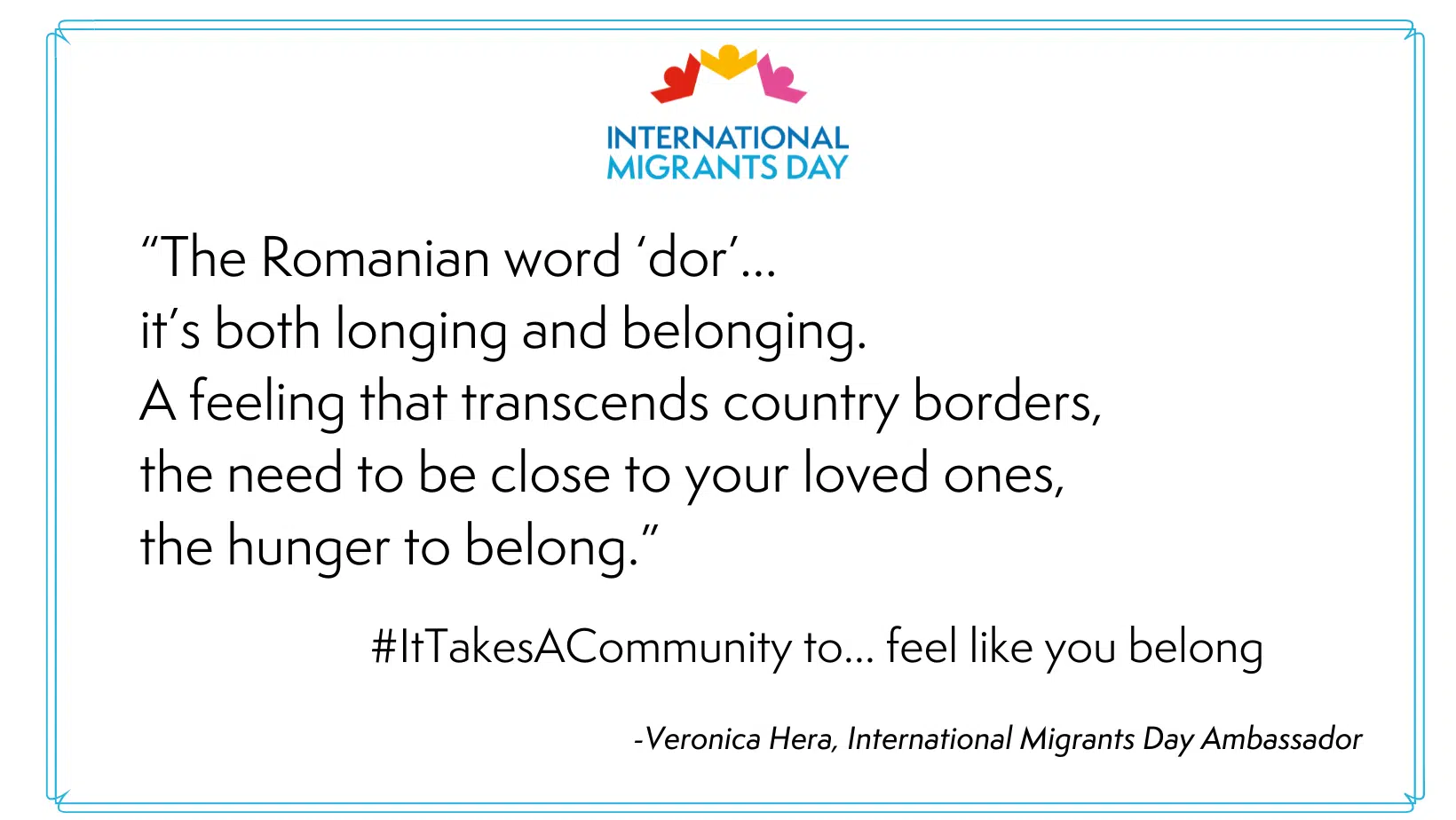
It’s designed to be used by a broad range of organisations including frontline charities and organisations who support refugees and migrants, local, regional and devolved governments and other charity allies. It provides all the elements of a strategic narrative: a messaging framework, suggested copy, and advice on how to engage particular audiences on this important topic.
It’s divided into two parts: part one outlines the thinking behind our narrative approach, and the components of a successful narrative on migrant destitution. While part two is a practical set of tools for you to draw on when planning your own communications on this topic, including:
- A set of evidence-based key messages
- A handy ‘in a nutshell’ message you can cut and paste
- Tips for providing a platform for people with lived experience of migrant destitution
- A guide to planning your own communications
- Dos and don’ts when talking to stakeholders
And finally, we’d like to thank everyone who contributed to this powerful project and played their part in creating something tangible that the refugee sector and our allies can use to unlock the potential of people living in destitution.
Download the Full Narrative Report
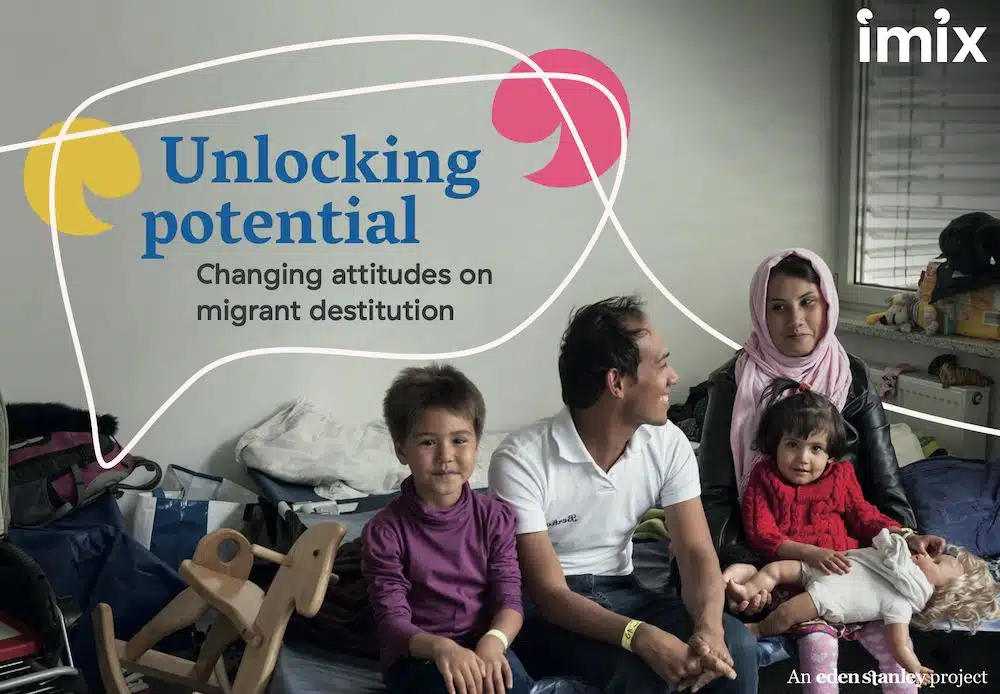
Download the toolkit
